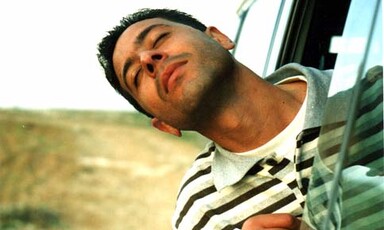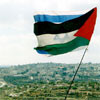
Film Review: Like Twenty Impossibles (2003)
27 January 2004
“Like Twenty Impossibles” is the work of Annemarie Jacir, co-written with Kamran Rastegar. Jacir is a Palestinian filmmaker, activist, and poet living between New York City and Palestine. The 17-minute short mockumentary tells the story of a journey in a country where checkpoints and a sinister patchwork of controlled areas make freedom of movement itself impossible, aptly portraying the complexities of oppression with a cast and crew that understand it. It is shot on location in Palestine, and the images of guns and power overwhelm the viewer as well as the waylaid film crew. Read more about Film Review: Like Twenty Impossibles (2003)








